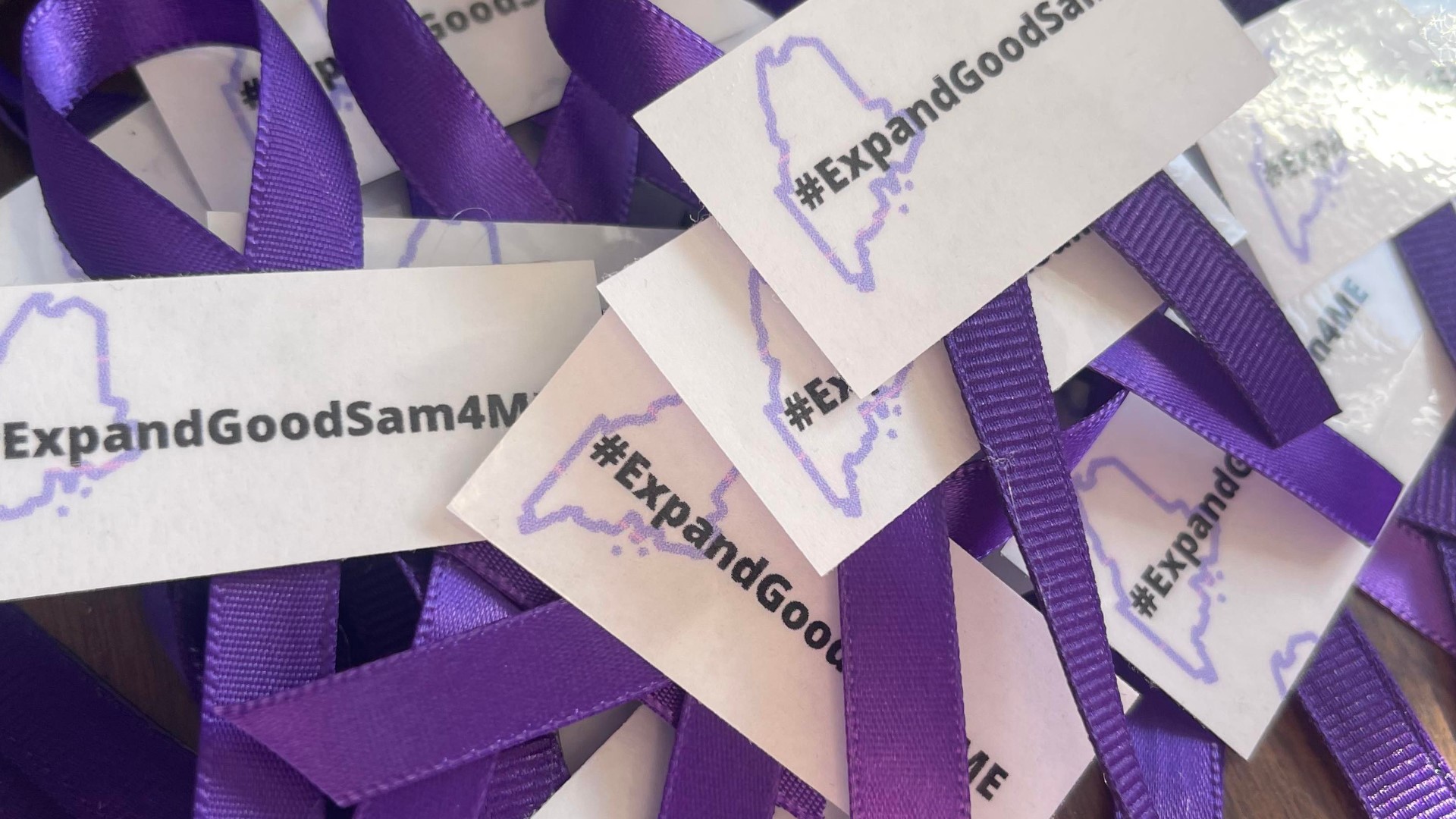AUGUSTA, Maine — In 2021, 636 people died from drug overdoses in Maine — a record high annual count. Some of those who work on the frontlines of the opioid epidemic are worried people are still afraid to call 911 at the scene of an overdose, which is what a bill in the Maine Legislature this session seeks to address.
LD 8162, An Act To Strengthen Maine's Good Samaritan Laws Concerning Drug-related Medical Assistance, is sponsored by Sen. Chloe Maxmin, D-Nobleboro, and has bipartisan support. It's designed to encourage people to reach out for help at the scene of an overdose without fear of consequences. Ultimately, the goal is to save more Maine lives.
"This expansion would really shift the conversation away from punishment, which we know over and over again is not affecting change. It's not helping," Rep. Lydia Crafts, D-Newcastle, said.
Crafts lost a cousin to an overdose in September last year after the other people onsite walked away without calling for help.
"For so long, we've tried to take the simple approach of, 'If we criminalize and punish people, we will see change' — and we know that's not happening," Crafts said. "I think there's more and more of a movement and an energy behind this because we see the widespread devastation of the opioid epidemic in our state and our country."
"Every life deserves to be saved, and those suffering from the grips of addiction and dying from a drug overdose are no different than the car accident victim who needs help from a nearby bystander," Sen. Matt Pouliot, R-Augusta, said in a statement.
Maine's "Good Samaritan" law, as it stands now, was passed unanimously by the Legislature and signed into law by Gov. Janet Mills in 2019. It gives immunity to the person who calls 911 at the scene of an overdose and also protects the person overdosing from being charged with or prosecuted for certain crimes related to drug use and possession. LD 1862 would take that protection a step further, covering everyone at the scene of an overdose and preventing them from being charged with nonviolent offenses. That includes bail and probation violations.
"People who use drugs have been so systematically-disenfranchised from our community and have been harmed by the policies that we have put in place that they don't trust the system, and they don't trust police officers most of the time," Courtney Allen, policy director of the Maine Recovery Advocacy Project, said, later adding, "This is just one more way that we can build the trust between drug use in communities and police force, as well as EMS force."
Bruce Noddin, executive director of the Maine Prisoner Reentry Network, said people getting out of prison or jail are often vulnerable. They may be on probation, have warrants out for their arrest, or have criminal records — and that means they're often living in fear of law enforcement.
"It's really important about getting the message out to people that you can stay with the person. You can administer Narcan. Take care of them until emergency treatment comes, or until the police come," Noddin said about LD 1862.
"The message [this bill] sends is you as a fellow citizen (a 'Good Samaritan') should be staying with that person that you either care about, or even that person that you don't know and have never seen before — that you will be safe on that scene," Noddin said.
Allen forwarded an email to NEWS CENTER Maine that Mills' deputy legal counsel sent to Sen. Maxmin on January 28. In it, he said the governor "does not support the proposal to allow an exemption from criminal liability for people who do not seek medical assistance for a person experiencing a drug related overdose and does not support expanding protections beyond the crimes already enumerated..."
He also added, "The Administration is not opposed to clarifying this is an affirmative defense and is committed to supporting efforts by the OPTIONS program to increase awareness among the law enforcement community and the general public about the protections the current law offers."
NEWS CENTER Maine reached out to Mills' office for comment but has not heard back.
On Thursday, February 10, another event is happening for this bill. A press conference is scheduled at the State House from noon until 4 p.m. People will be invited to hand out purple ribbons with the Maine Recovery Advocacy Program in solidarity with this bill.

